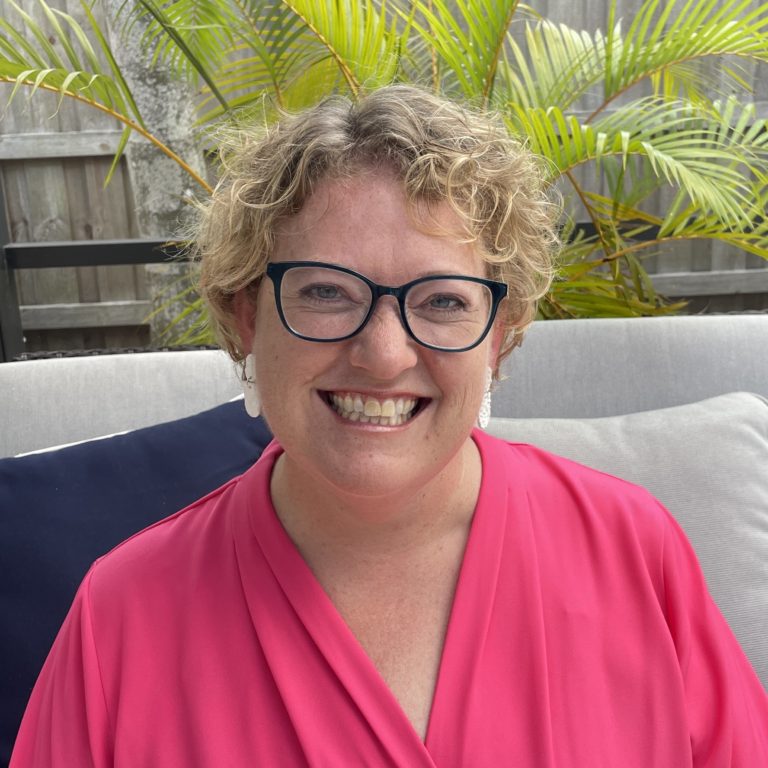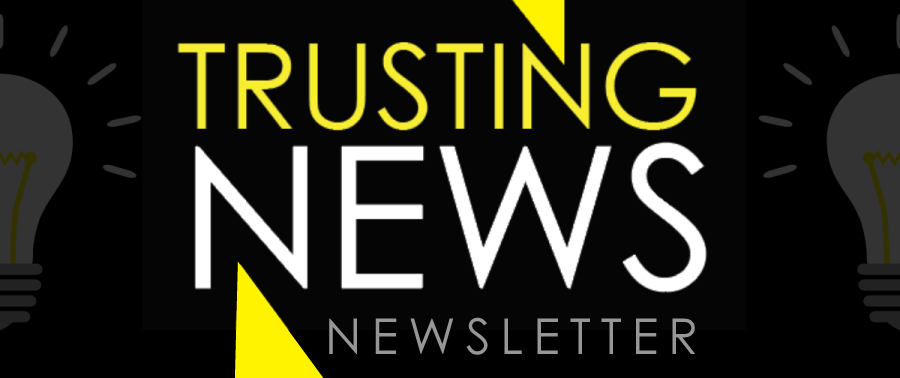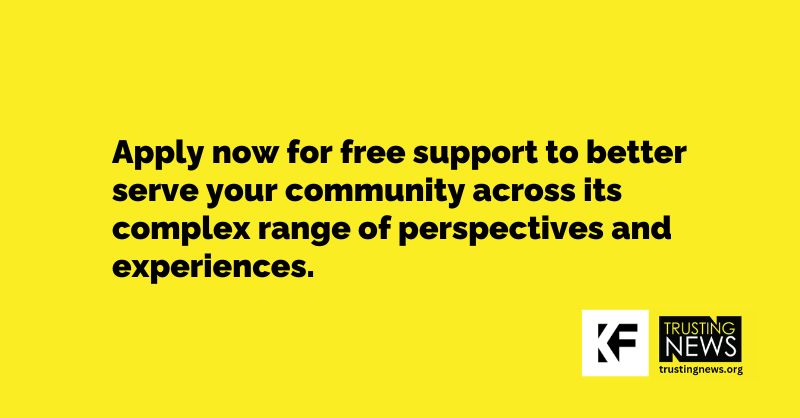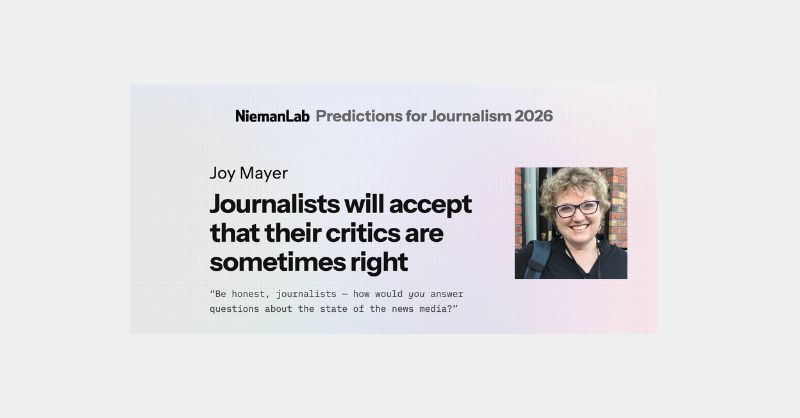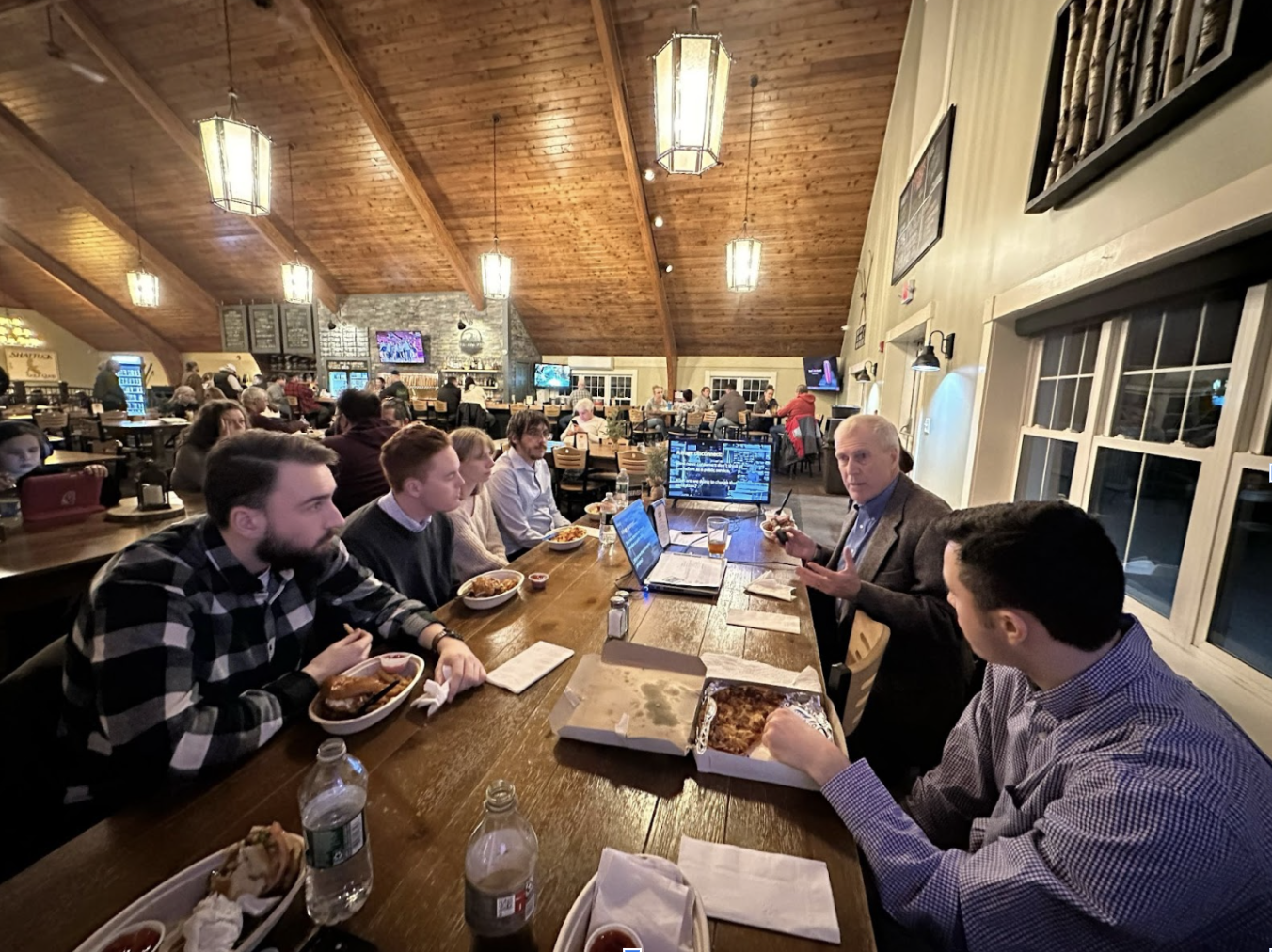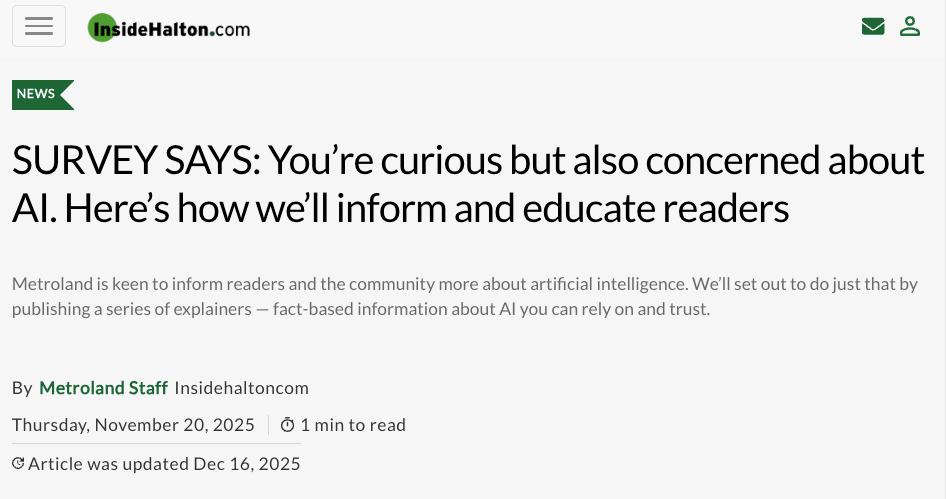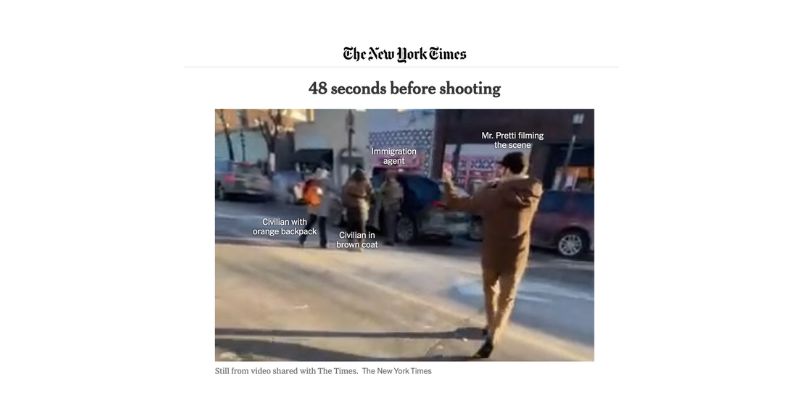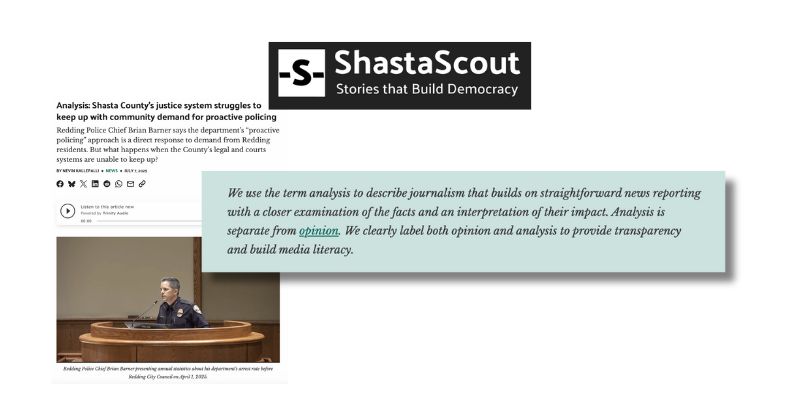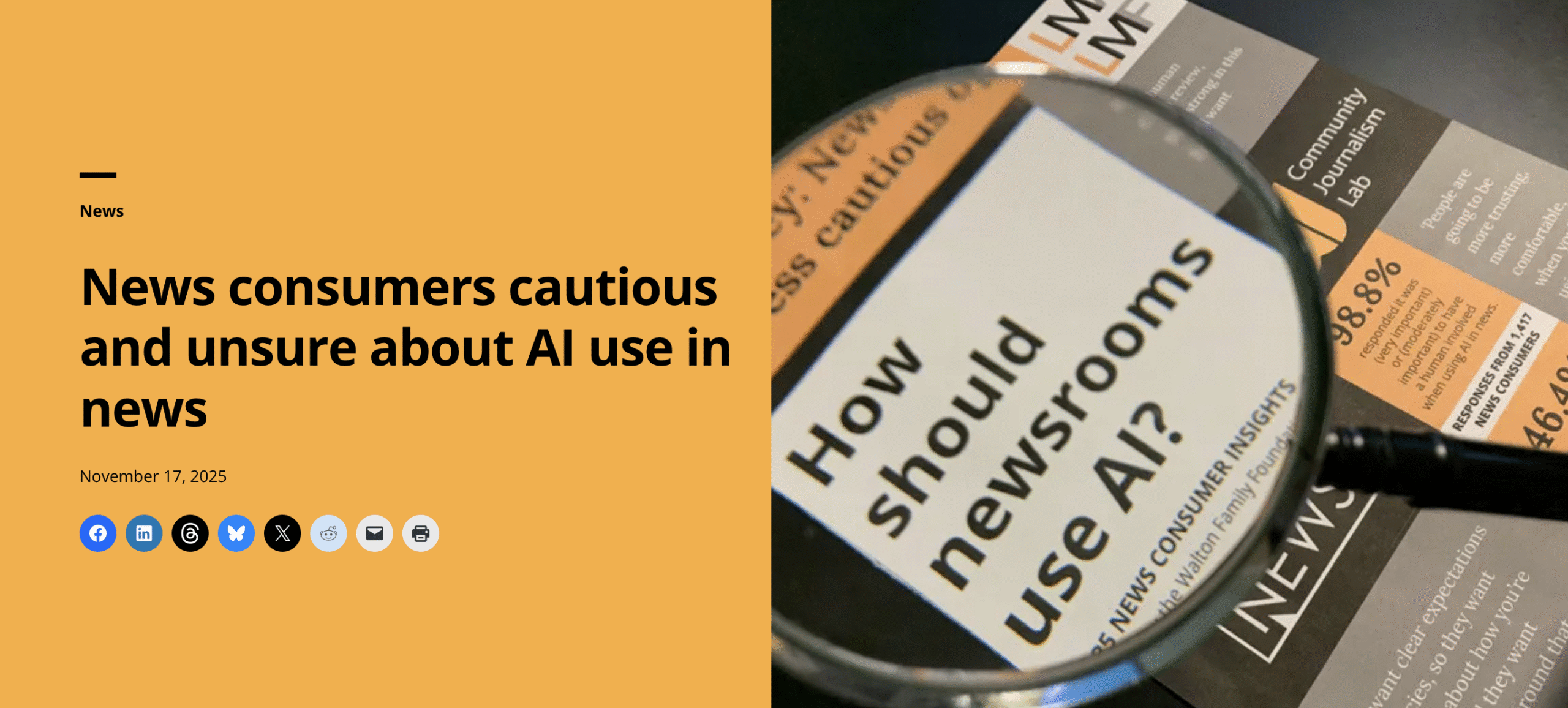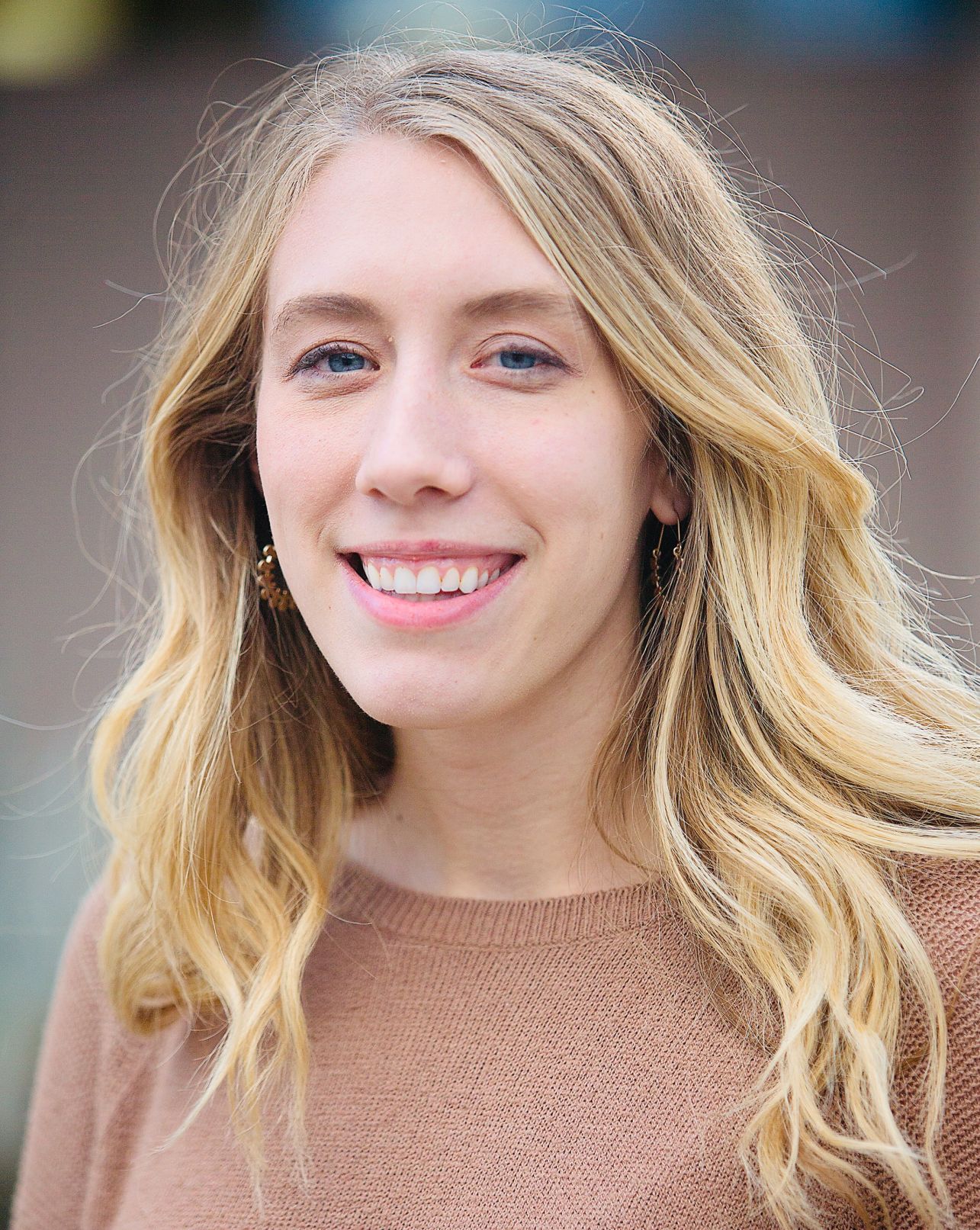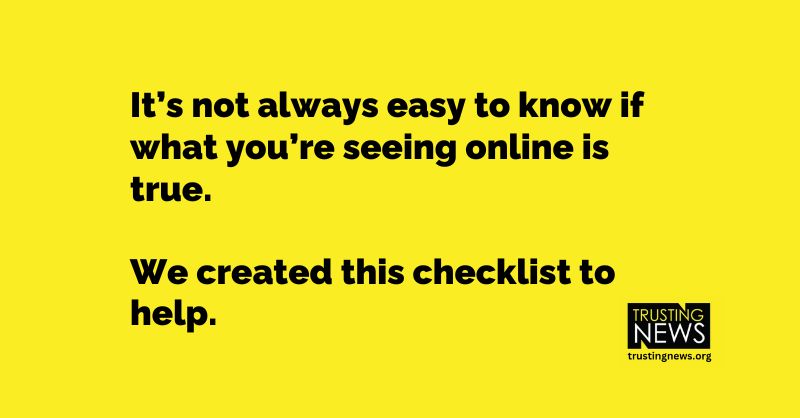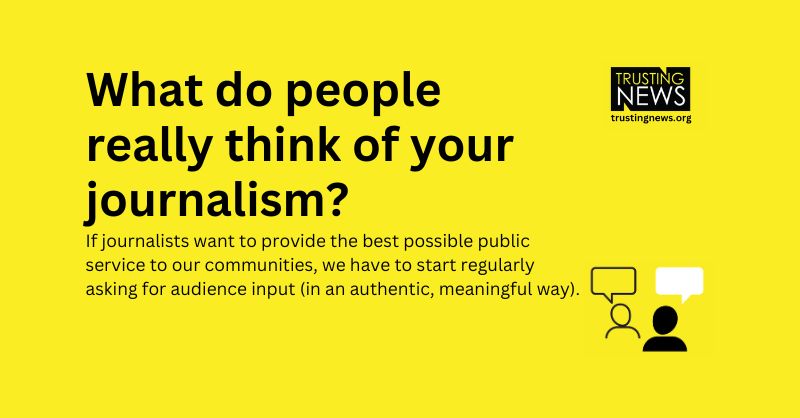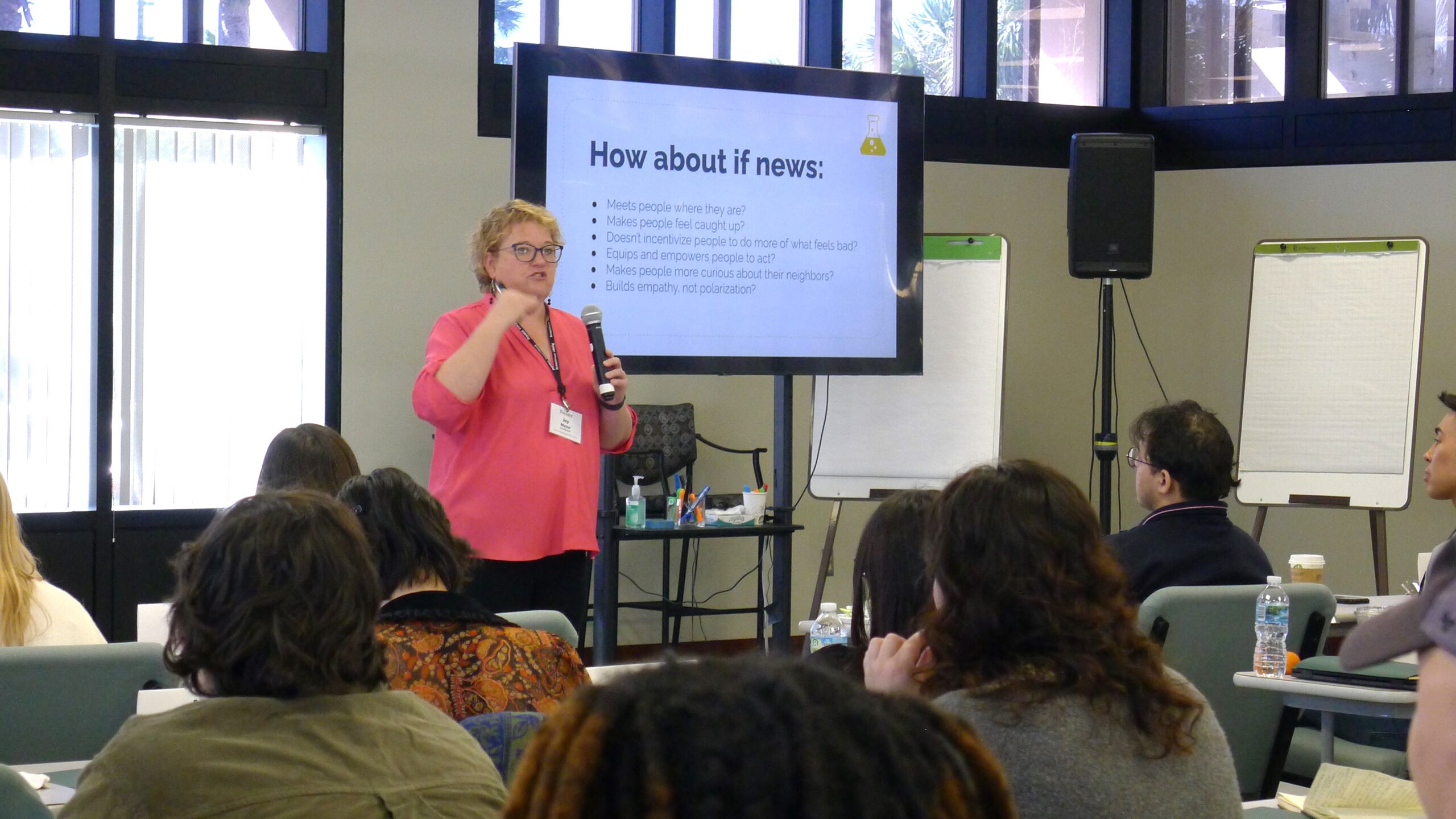
Trusting News Director Joy Mayer trains a group of Koch Fellows at the Poynter Institute in St. Petersburg, Florida, on Feb. 7, 2024. Photo by Gil Asakawa.
Trusting News’ 2024 priorities include AI, elections, news avoidance and newsroom echo chambers
With more journalists facing layoffs and the public’s trust in media declining, it’s hard not to feel like the state of journalism is fragile at best. That’s why at Trusting News, as our mission and vision statements demand, we want to make sure we’re offering support to journalists in the ways that are most urgent and will have the most impact.
We succeed only if we provide relevant, actionable help that equips newsrooms to provide a better public service to their complex, diverse communities. We succeed when both newsrooms and their communities thrive.
We have a lot of ideas for how we can do this – through our work and through collaborations with other journalists, researchers and support organizations. It’s easy for our small team to dream big, so we rely on feedback from newsroom partners, research and industry trends to see just where our time and support will best be of use.
We’ve narrowed in on the areas we plan to focus a lot of time on in 2024, and we’re excited to share them with you.
An important note: None of these projects can happen without continued support and collaboration, both from funders and from journalists willing to commit to earning trust. We are still actively fundraising to get us through 2024. If you’re interested in funding any of these projects or collaborating in any of these areas, we’d love to connect. Reach out to our team at info@trustingnews.org.
Where we’re focusing our energy in 2024
Here are some of the main areas we plan to invest in this year, through trainings, research, newsroom cohorts and individualized support. At the core of much of the work is this question: Who feels seen and understood by journalism, and who feels neglected or misrepresented?
Strengthening election and political coverage.
It’s another election year, and unfortunately, it feels like not much has changed since the last time we did this. The country feels more polarized, people’s trust in news is still low, and it seems like journalists are working to right a many-year shrinking ship when it comes to political coverage. That’s why we’re eager to work alongside newsrooms and help them better earn trust and demonstrate credibility through their election coverage. We have research-backed strategies around how to depolarize coverage, center community needs, and tell the story of our ethics, processes and mission. We continue to publish resources and tools for newsrooms, and we will soon announce opportunities to join a cohort of newsrooms putting those strategies into place.
We’re continuing to partner with Dr. Joshua Darr at Syracuse University on ongoing research of how audiences respond to language choices around politics and democracy. We’re excited to share these actionable results with newsrooms in the spring.
We’re also excited to continue another year of the Advancing Democracy fellowship. In partnership with the Solutions Journalism Network, Hearken and Good Conflict, the program helps support journalists and newsrooms in strengthening journalists’ election coverage and ultimately, our democracy, through innovative approaches that build civic engagement, equity and healthy discourse.
Addressing news avoidance
The news is exhausting, and more people are reporting they are tuning out of news coverage altogether. This, of course, affects not just how people engage with your reporting but also how people engage in their communities and democracy.
The good news is journalists can help counter this news fatigue by helping people create healthier relationships with their news feeds. We will continue exploring strategies for how journalists can provide information that feels less overwhelming and also equip their communities to better navigate the news landscape. (Coming up: We’ll host a webinar conversation with Benjamin Toff, whose recent book on news avoidance is illuminating. Subscribe to our weekly Trust Tips newsletter for registration details, coming soon.)
Building trust through AI and new technology
Generative artificial intelligence is not going to be a fad we see come and go. As with any new technology, journalists need to both explore what’s possible and be cautious about potential pitfalls or challenges. The power and influence of AI touches so many aspects of the news process: finding stories, fact-checking, sourcing, writing, publishing, etc. It has the potential to be helpful in so many ways — but also could be harmful, especially when it comes to trust.
We see in this technology an opportunity for journalists to model both exploration and caution — to educate and empower the public to navigate AI through transparency and clarity around our own use. We also see opportunities for journalists to use AI to better understand how their coverage might be perceived. We’re feeling urgency around the guidance we can continue to contribute in this space and will soon provide resources and guidance around disclosure of the use of AI in the newsroom and also potential community engagement opportunities around this topic. If we have funding to support it, we also plan to attach newsroom experimentation and research to that work, assessing how the public responds to different policies and disclosures.
Addressing newsroom echo chambers
Our Dimensions of Difference work, created in partnership with Spaceship Media, is centered around the idea that newsroom cultures should invite dissent and diverse views. Journalists can better serve their complex communities when they take the time to identify, understand and talk about their staff’s values, experiences and differences. This can seem straightforward, but acknowledging and being able to talk productively about our many different points of view is often intimidating and messy. Especially when talking about how these differing views do or don’t impact coverage.
In the days of remote work, Zoom meetings and overstretched staffs, we’re seeing journalists struggle to get to know each other well, lean on each other’s experiences and function as a team. We’re seeing newsrooms that are not equipped themselves to candidly discuss the nuance of the complicated issues they’re covering. We’re hearing from journalists that they don’t feel safe challenging each other’s work. That’s why we are committed to supporting newsrooms as they tackle challenging conversations.
Leaning into engagement and listening
We recently talked to about a dozen partner journalists we’ve worked closely with to hear what their newsroom’s biggest needs and priorities were this year. We heard from all of them that adopting more engagement practices into their newsroom’s routines – including coverage that better reflected their communities, building relationships and reaching more diverse communities (like rural, conservative, BIPOC, and younger audiences) – was a main priority.
Listening to and engaging with your community is foundational to building trusted relationships and are areas we’re always eager to help newsrooms evolve. We plan to offer more guidance and support in this realm, whether that be through targeted community listening, resources on running and hosting events, engaging through online interactions and beyond.
Ongoing projects we’re excited about
Alongside the above focus areas, we’re excited to deepen and expand our continued work with newsrooms and researchers. Some of these projects include:
- Oklahoma Media Center research: Trusting News has been working alongside the Oklahoma Media Center, where they invested in statewide research to study how well served Oklahomans feel by the news and have followed it up with our training and coaching for a group of Oklahoma newsrooms. We’ll have learnings and examples to share this spring, and we’re eager to connect with other state or regional cohorts of newsrooms interested in similar efforts.
- MOOC course: In partnership with the Solutions Journalism Network and Hearken, we will be hosting a MOOC through the Knight Center. The course will cover best practices for election coverage that is useful, trustworthy and solutions-based. The course is free for journalists and will take place remotely from March 25-April 21. More information about how you can sign up for the course will be released soon.
- Supporting our network of partner journalists: We will continue supporting both our longtime newsroom partners and our growing network of journalists by offering a variety of structured trainings as well as individualized support options, especially ahead of November’s election.
- Weekly newsletter. One of the main ways we share new research, learnings from newsroom partners and ongoing opportunities for journalists is through our weekly Trust Tips newsletter. We invite you to subscribe to be among the first to learn about opportunities to plug into our cohorts, training opportunities and more.
Continuing this work
Like many journalism support organizations, most of our annual budget comes through philanthropy. This means the depth and scale to which we can tackle these topics and provide support is dependent upon the funding we receive. And our 2024 work is not yet fully funded.
If you would like to support this project or have ideas about who is investing in the ability of newsrooms to take ownership over the crisis of trust — in service of healthy communities and democracy — please let us know. Email founder and director Joy Mayer at joy@TrustingNews.org.
Or if you’re a newsroom or journalist interested in this work and want to connect – feel free to reach out.
Thanks for working to build trust
We often reflect in staff meetings just how grateful we are to do this work alongside such smart, thoughtful journalists. If you’ve worked alongside us or just follow our work, thank you. We hope you’ll continue to prioritize building trust and digging deeper with us this next year.
The best way to stay connected and hear about upcoming opportunities is to subscribe to our weekly Trust Tip newsletter and to follow us on LinkedIn and X (Twitter).
At Trusting News, we learn how people decide what news to trust and turn that knowledge into actionable strategies for journalists. We train and empower journalists to take responsibility for demonstrating credibility and actively earning trust through transparency and engagement. Subscribe to our Trust Tips newsletter. Follow us on LinkedIn and X (Twitter). Read more about our work at TrustingNews.org.
